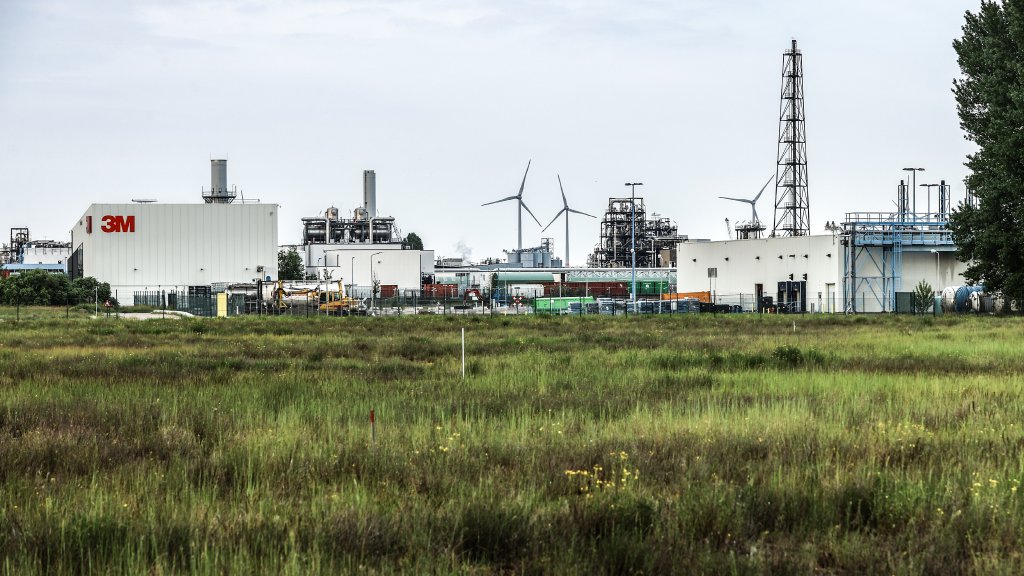No alarming results have been found by the three separate investigations into the presence of dangerous chemicals in food products in Zwijndrecht following the pollution scandal which made headlines earlier this year.
In the previous weeks, the investigations were looking into the presence of PFOS and PFAS - chemicals that are hazardous to human and animal health - in food products in the municipality nearby the site of company 3M's factory, where soil samples showed dangerous levels of PFOS.
Although test results were not alarming, some caution is still needed, according to commissioner Karl Vrancken, appointed by Flanders and the municipality of Zwijndrecht to chair the committee of enquiry into the pollution in the region.
"Certainly when it comes to consuming eggs from free-range chickens that live outside on the ground, for example. These show much higher PFAS values than eggs that come from a farm where the chickens live under a roof and therefore do not eat from the (contaminated) ground," he said.
The general recommendations concerning the consumption of home-grown fruit, vegetables and eggs - especially from free-range hens - remain in force after PFAS and PFOS were detected in various samples.
The plant run by 3M - the company best known for its Scotch tape and Post-It notes - produced the chemical there until the year 2002 for use as a water-repellent.
The danger zone around the site covers an area of almost 707 square kilometres, or about twice the size of Dublin, and includes not only Zwijndrecht but also Beveren, Wijnegem, Brasschaat in the north and Kontich in the south.
What each investigation found
The investigations by the Food Safety Agency (FAVV), the University of Antwerp, and the research bureau ERM - which was commissioned by 3M itself to investigate the food - took samples of eggs, meat, vegetables, fruit, and crops for analysis of the presence of the chemicals.
According to the results from the FAVV investigation, all samples from traditional farms within a 15 km radius of the 3M plant in Zwijndrecht met the Food Agency's quality requirements, meaning it is safe to consume products from traditional farms in the area.
The University of Antwerp took samples from an organic farmer in Zwijndrecht. The results showed a very limited presence of PFAS, but not PFOS. Therefore, for both adults and children, "normal consumption" of these products is safe.
Meanwhile, ERM examined free-range eggs, milk, vegetables, fruit, and crops from private individuals and agricultural and horticultural businesses in an area surrounding the factory site, and found that free-range eggs are of particular concern, as PFOS was detected in all free-range eggs tested.
Previous blood test results from samples taken from 800 Zwijndrecht residents and published at the start of August showed abnormally high levels of the chemical PFOS.

